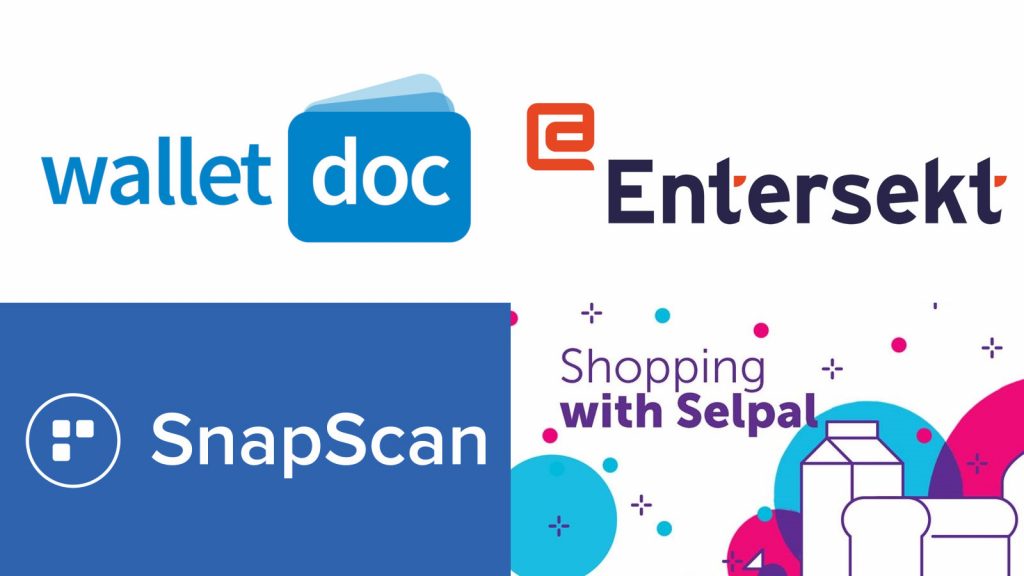LG’s 100-Inch QNED evo AI TV Redefines Big-Screen Viewing in South Africa In a bold leap forward for home entertainment, LG Electronics South Africa…
Here are eight SA fintechs that local banks are working with [Updated]

SA fintech startups are offering banks new ways to accept and make payments, lend out loans and offer financial services to the previously under or unbanked.
Like this it’s easy to see why fintech means big money.
An analysis by Ventureburn (which considered only disclosed investments involving tech companies of under seven years old) reveals that in the first half of 2019, fintech startups netted R188.7-million in eight disclosed SA tech startup deals, or about 37% of the R508.1-million of the total 18 disclosed deals (see this story and this one).
Last week Ventureburn contacted all four major banks to ask them what startups and fintech companies they are working with, as well as a number of other questions around how much revenue these have helped the bank create or the value in loans or payments made through such platforms.
Fintech startups are offering banks new ways to accept and make payments, lend out loans and offer financial services to the previously under or unbanked
But none of the banks had responded by time of publication.
While media representatives from some of the banks earlier this week indicated they were still intending to respond, FNB head of PR Lwazi Stuurman pointed out that such information might be too sensitive for the bank to disclose. “We typically do not reveal this level of financial or partnership related detail because of contractual agreements,” he added.
Ventureburn therefore compiled its own list of fintechs that South Africa’s big four banks are working with (we include only those deals and partnerships that the bank has disclosed).
First National Bank

Last year in November, First Rand — First National Bank’s (FNB) parent company — announced that it had acquired an undisclosed minority stake in the Johannesburg-based fintech Selpal.
Last month Selpal CEO Stephen Goldberg told Ventureburn that the fintech had grown its revenue and customer footprint “fourfold” since the investment (see this story).
He said since receiving the investment from First Rand his company had “more than doubled” its staff numbers and now employs over 100 people.
The company, which Goldberg helped found in 2012, offers a point-of-sale device and tech platform aimed at township businesses.
Using the platform businesses can sell things like airtime and electricity to customers. In addition, customers that use the system can score loyalty points that they can then use to purchase products sold by the businesses using the system.
This, while a wallet system allows business owners to pay suppliers in credit they have placed in their wallet, rather than with cash.
At the time he said First Rand and its various companies including FNB are keen to use Selpal’s channel to offer financial services to the informal market, while using the data collected by the platform to better understand the informal market.
He declined to name the two brothers who co-founded the business with him in 2012, saying that they prefer to “stay out of the limelight”.
The company was self-funded by the three until 2017 when an angel investor invested an undisclosed amount in the company. Goldberg would not reveal how much the angel investor put in, or how much the three founders had committed of their own money.
Standard Bank

Arguably the bank’s most well-known fintech acquisition in recent years is the QR code payment app SnapScan. In 2016 the bank acquired a majority share of Firepay, the company behind Snapscan, for an undisclosed stake.
Firepay, which was co-founded in 2013 through startup incubator FireID by Kobus Ehlers and Malan and Philip Joubert among others, launched the SnapScan app in partnership with Standard Bank in 2014.
In August Cape Town based fintech company Nomanini revealed that it had netted $4-million (about R61-million) in an investment round led by Standard Bank, with participation from Amsterdam-based investment firm Goodwell Investments.
Standard Bank did not disclose the stake it had taken in the company.
Nomanini was founded in 2010 by Vahid Monadjem. The company — which currently has 17 employees and recently opened offices in Johannesburg and Lusaka — connects informal merchants with distributors via an e-wallet and physical device. Merchants can use the same device to offer basic banking services to their communities.
The fintech said in a statement at the time that by investing in the company, Standard Bank will be able to use Nomanini’s platform to collect data on the informal retail economy (see this story).
In an article at the time SA financial publication Moneyweb quoted Adrian Vermooten, Standard Bank’s head of digital in Africa regions, who said by using Nomanini technology, Standard Bank will be able to collect for example data on pre-paid airtime, which would enable the bank to build up a financial profile on each retailer.
Another recent investment by Standard Bank was an undisclosed stake it took in Merchant Capital, which lends to small businesses.
The Johannesburg based fintech startup was founded in 2013 by Dov Girnun, who was later joined by co-founder Daniel Moritz.
Girnun told Ventureburn earlier this month that since June last year when Standard Bank took what he referred to as “a small percentage stake” in Merchant Capital, the fintech has been able to access R200-million in deals in the last year (see this story).
Standard Bank’s stake, he revealed, is similar to that of Rand Merchant Investment Holdings (RMIH), which in 2015 acquired a 25.1% stake in the business. Neither RMI nor Merchant Capital has revealed how much was invested.
The Standard Bank deal allows the bank to refer clients to Merchant Capital’s fintech platform to access finance from the fintech’s loan book. The bank gets to retain those relationships it has with clients, while these clients utilise the fintech platform.
What of other banks the fintech spoke to? FNB, which often lays claim to be SA’s “most innovative bank” turned the financier down. Girnum said the bank claimed that it didn’t need the fintech platform as it’s already able to service clients with its existing technology.
Nedbank

Nedbank CEO Mike Brown last month was quoted by Fin24 in an article as saying the bank had invested about R2-billion a year in new technologies to stay competitive.
Nedbank — through Nedgroup Investments and Nedbank Insurance — is working with Atura, an automated chatbot for asset management companies. It is utilised by Nedbank under the name “My Extraordinary Life”.
Atura is a separate company owned by Cape Town software firm New Media Labs (NML), which was founded in 2007.
The fintech in September last year landed an undisclosed Series-A investment from Blue Garnet Ventures, an investment company that counts Investec and local investment fund Crossfin among others as investors (see this story). Crossfin has the majority share in Blue Garnet.
The bank is also working with the Karri app, which was launched in 2017 by Doug Hoernle. The app allows schools to collect payments from parents. As of October last year just under 300 SA schools were using the app (see this story). While Karri is working with Nedbank, users can use any bank for payments.
In 2017 Cape Town based authentication and mobile-security solutions company, Entersekt announced that it has concluded a multi-million dollar deal with Rand Merchant Investment Holdings (RMI) and Nedbank Private Equity.
Enterseckt provides authentication and mobile-security solutions for financial services providers around the world.
The deal was for minority shares of an undisclosed amount in Entersekt. The company has grown from a team of five to about 140 people late last year, since it was founded in 2010 by Nolte’s brother Dewald and three other Stellenbosch University students.
At the time Enterseckt said in a statement that the injection of capital will be used to further expand Entersekt’s reach into other markets as well as further its own research and development.
Absa

In 2016 Absa announced that it had partnered with Walletdoc, a fintech startup, offering users a smart, secure and convenient way to pay their bills such as monthly subscriptions and utilities — without the tedious filing and administration normally associated with payments.
The Johannesburg-based fintech was founded in 2015 by Dan Wagner and Leonard Shenker. At the time Shenker did not disclose at the time, the value of the partnership.
Shenker told Ventureburn by phone that the startup and Absa entered into a strategic partnership in 2016. He stressed that the bank does not have a stake in the company.
He said the startup has a staff contingent of between 15 and 20 employees, which includes an office staffed with developers that the company launched in Ahmedabad, India last year.
The startup, did a capital raise in 2015 from five SA businessmen, which Shenker did not name. He declined to disclose how much the company raised.
The startup’s solution notifies you when bills arrive, reminds you when bill payments are due and allows you to pay your bills.
It also takes care of account and reference numbers, resulting in a hassle-free experience for users while ensuring billers always receive reconciled payments.
Walletdoc has also partnered with EasyPay, an independent service that facilitates the payment of accounts and is linked to an extensive network of over 400 of South Africa’s largest billers including municipalities, Eskom and Telkom.
Read more: Fintech accounts for over a third of SA tech startup investments in 2019 so far
Read more: Five SA fintechs that service the growing market of SME lending [Updated]
Read more: Are these SA’s 10 biggest disclosed VC deals so far in 2019? [Updated]
Read more: What does the average SA fintech founder look like?
Read more: Are these the biggest disclosed VC deals in 2018 involving SA tech startups?
Editor’s note (26 September 2019): This story was updated to include comments from Walletdoc co-founder Leonard Shenker.

